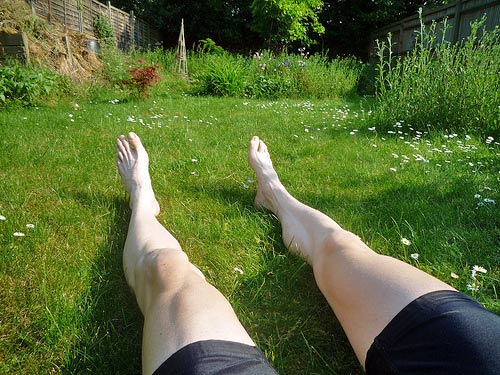Overtraining can seriously damage your performance. It can also reduce your motivation and inspiration to train. It is not always the case that spending more time = better results. It is important to be judicious in when we train and when we rest.
1. Start off with Base Training
If you are relatively new to cycling, avoid jumping in with intense interval sessions. It is best to build up your aerobic fitness, through steady training rides. When you have built a certain base level of fitness, the body will be able to cope with intense interval sessions much better.
2. Set Aside Periods of Rest
In a week of training. You should set aside a minimum of one day for rest. Sometimes a gentle short cycle can be as good (or even better) than a complete
rest.
3. Right Variety of Training.
The basic principle of training, is that we stress the muscles so they have to grow. But, after this stressing period we need to give them time to recover. Therefore, when doing interval training it is most effective to avoid doing it on consecutive days.
4. Training Cycles.
We can split our training up into 4 week cycles. If we do 2 or 3 weeks of heavy training, the next week should be a significantly lighter load. Again it is using the principle of stress and recovery.
5. Good diet
It is important to maintain a good diet with the basic nutrients. As you do more training, your calorie requirements may increase by more than you expect.
6. Rest When Ill
When you have a virus or are recovering from a serious illness – be patient and don’t stress the body too much.
7. Training Diary
Keep a training diary where you can record your heart rate, recovery period, how you feel and how much you have been training. This will help indicate good patterns and also times when your usual resting heart rate is much different.
Overtraining is not an exact science. It will differ between different cyclists. What may cause symptoms of overtaining in one cyclist may be insufficient training for other people. Basically, don’t compare yourself with other (pro)cyclists. You have to go at your own pace.
How To Tell If you Are Training too hard

Overtraining is quite a common phenomena. In many ways overtraining can be as damaging as undertraining. It is important to be able to notice the signs that you are overtraining. This requires a degree of self-awareness; it is important to learn how to listen to the signals of the body. These are some of the effects associated with overtraining.
- Loss of Enthusiasm to train and race. This is a big signal. But, just because you don’t have enthusiasm to go training in the rain doesn’t necessarily mean you are overtraining – there could be many other reasons for loss of enthusiasm
- Difficulty in raising your heart rate. You will notice the effects of overtraining most, when you try and do interval training. This is an important signal to back off. Overtraining is not so much related to quantity, but, also the intensity of training.
- Sleeping patterns disturbed. If you are often tired in the day, but, struggle to sleep at night – This is a signal of overtraining.
- Loss of libido
- Dislike the thought of going out training.
Sometimes overtraining can be purely physical, but, often it can be psychological as well.
It is also possible to misdiagnose overtraining. For example, these factors above might be caused by:
- Under nourishment. If you are training hard, make sure your diet keeps up.
- Virus or illness.
- Stress from other aspects of your life
Related

Leave a Reply